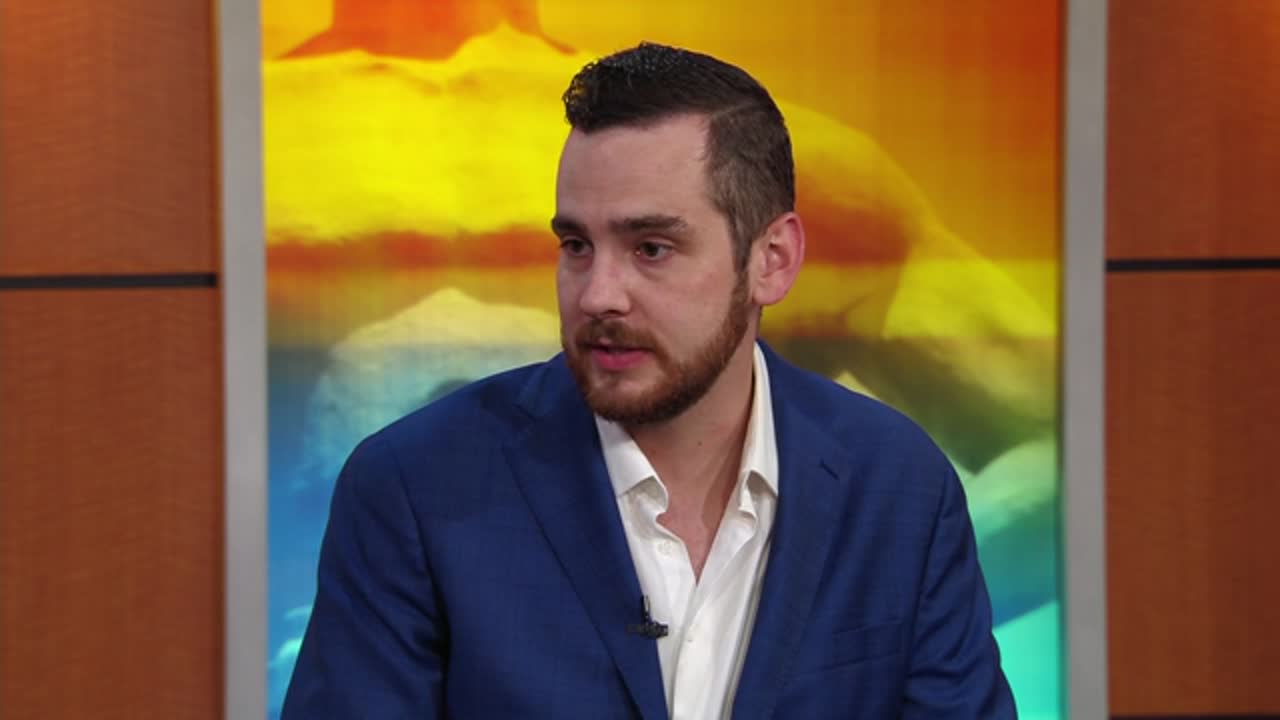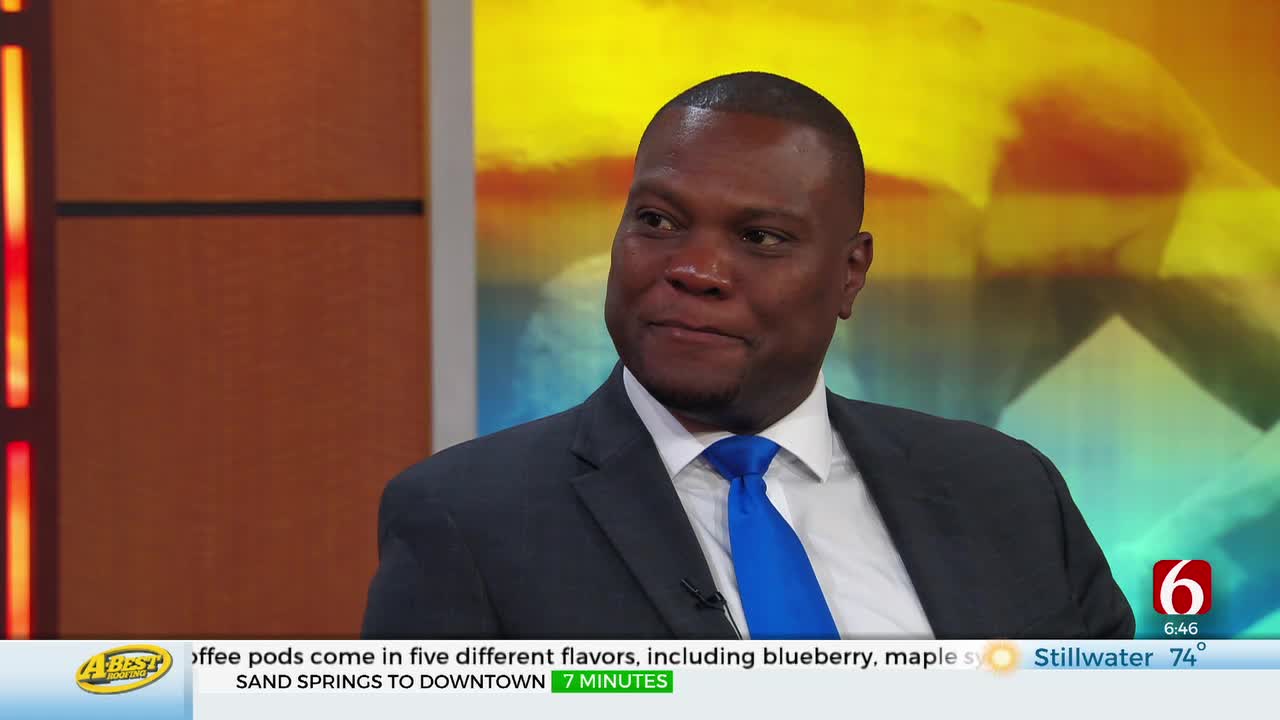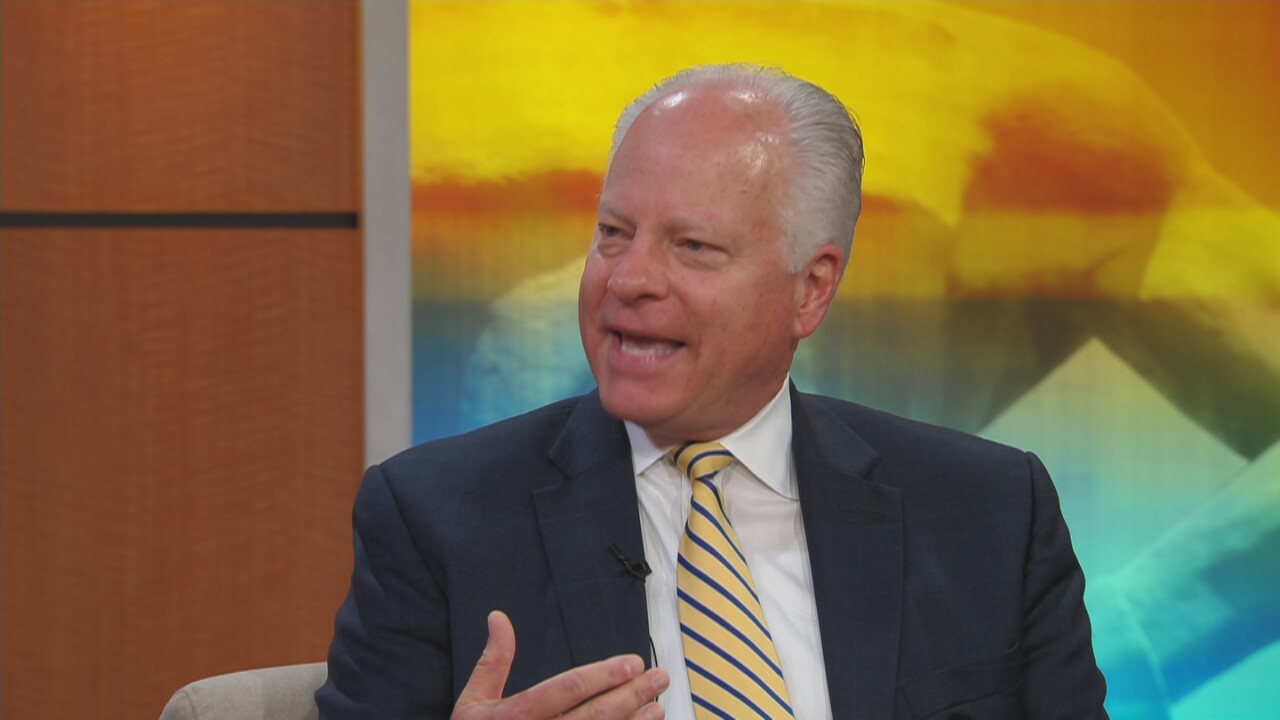Who Are The Tulsa Mayoral Candidates? What Are Their Stances On Important Issues?
Voters will head to the polls on Tuesday to decide who will become the next mayor of Tulsa. John Jolley, Karen Keith, Monroe Nichols, Brent VanNorman, and Casey Bradford are all running for the position.Friday, August 23rd 2024, 2:43 pm
TULSA, Okla. -
Voters will head to the polls on Tuesday to decide who will become the next mayor of Tulsa.
Casey Bradford, John Jolley, Karen Keith, Monroe Nichols, and Brent VanNorman are all running for the position.
Casey Bradford
Casey Bradford is a Tulsa businessowner, a US Army Veteran and a father of three.
Bradford said he spent about a decade serving in the Army before opening Shady Keys Dueling Piano Bar in 2019. He said he decided to run after spending years talking with customers about their concerns.
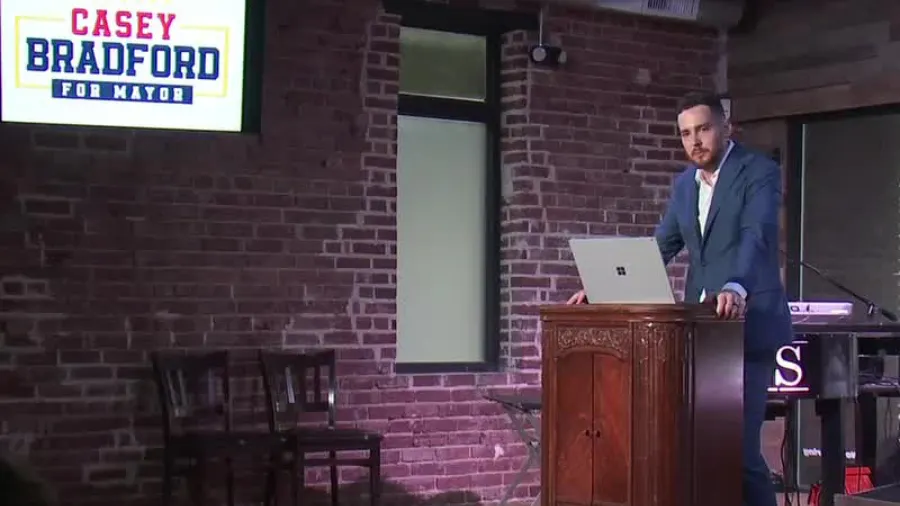
His main focuses:
- Getting Tulsans To Vote
Bradford says that fewer than 25% of Tulsans are registered to vote. He says that voting in local elections is one of the most important things people can do to influence where funds go.
Full interview with Casey Bradford can be found here.
John Jolley
John Jolley is a business owner in Tulsa. After moving to Tulsa in 1982, he went from the oil and gas industry to starting an advertising company. After becoming a single father at 50, he knew he wanted to leave the world a better place, so he decided to run for mayor.
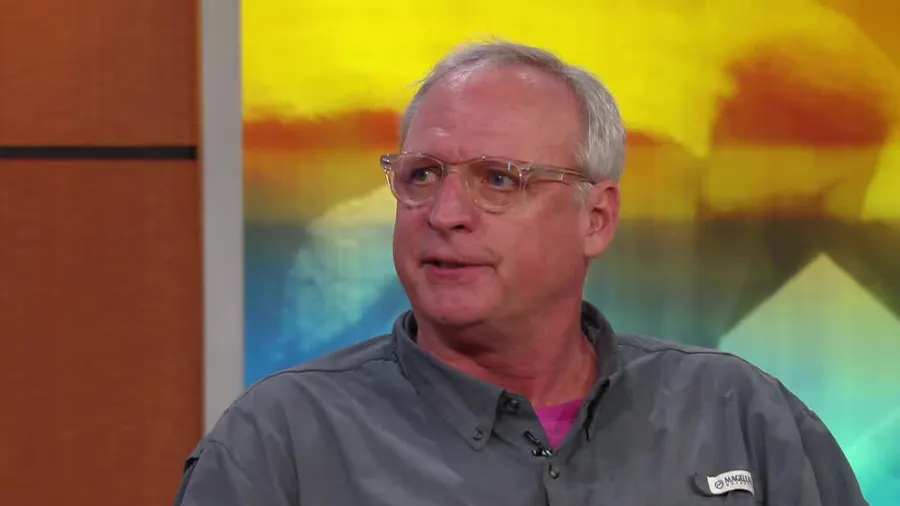 His main focuses:
His main focuses:
- Support for Tulsa Public Schools
As a father of a child who goes to Tulsa Public Schools, Jolley believes the Tulsa mayor should stand for the public schools.
“A city is only as strong as its public schools because if you don't have strong public schools, a city will slowly die,” he said.
- Community Healing and Outreach
Jolley plans to continue the community-focused and progressive initiatives started by Mayor Bynum. He says he values kindness and compassion in leadership and aims to keep the community united and supported.
- Addressing Homelessness with Compassion and Practical Support
Jolley recognizes that homelessness in Tulsa is not a quick fix. He says he plans to offer hope and practical help to those who can help themselves while also providing targeted assistance for those dealing with addiction and mental health challenges.
Full interview with John Jolley can be found here.
Karen Keith
Karen Keith is no stranger to civil service in Tulsa: she has 16 years of experience working at Tulsa County and previous experience working in the mayor’s office. She says she’s “uniquely positioned” to run for mayor based on her experience.
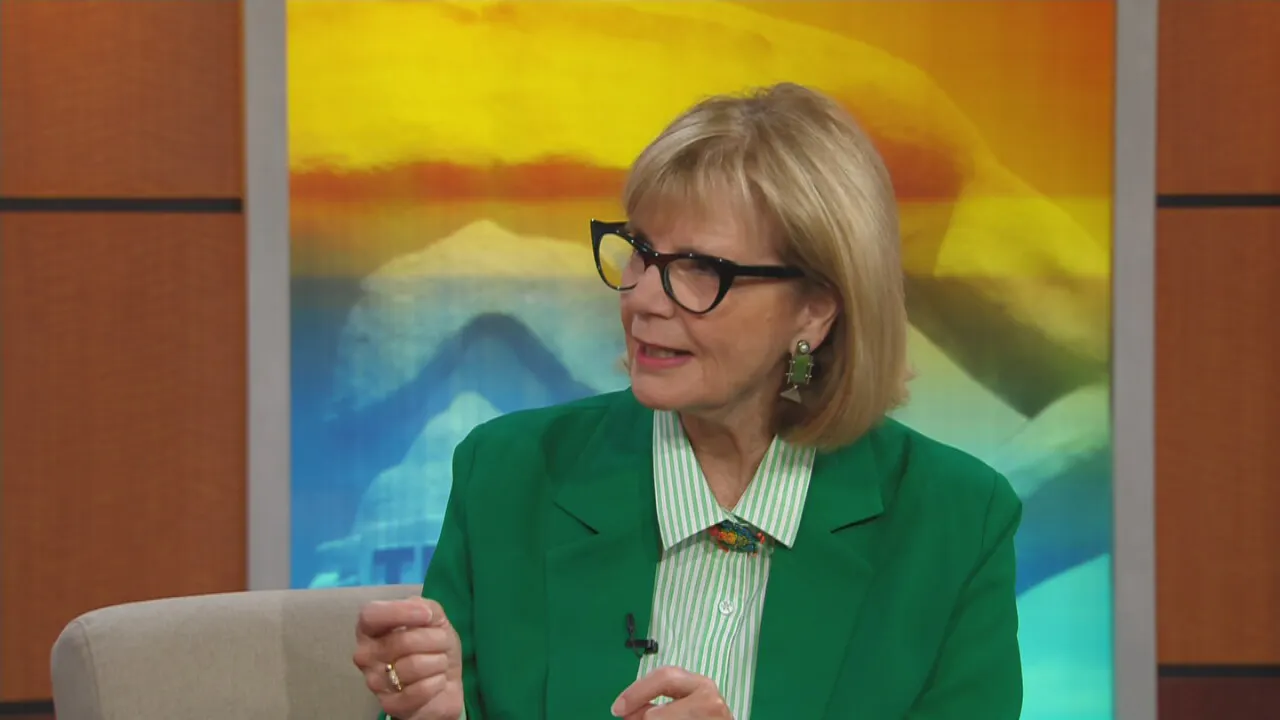 Her main focuses:
Her main focuses:
- Plans for Affordable Housing
Keith says her No. 1 priority is affordable housing through pre-permitting. She believes this will lower costs and will also help the homelessness issue in the city.
- First 100 Days in Office
She says she wants to focus on street improvements, including new lighting in neighborhoods like North Tulsa within her first 100 days. She also wants to ensure crossing guards are available at high-traffic streets to protect children. She proposes opening a remote permitting site to ease the process for developers.
- Continuing and Building on Mayor Bynum’s Efforts
Keith wants to continue to promote Tulsa as a welcoming city and celebrating its diverse cultures. She also has admired his resilience in crises like floods and the pandemic.
- Areas for Improvement and Change
Keith plans to change how street work is contracted, learning from other successful models to ensure projects are completed efficiently and on time. She suggests implementing penalties and rewards for contractors based on project timelines to improve accountability.
- Collaboration and Vision for Tulsa
Keith emphasizes the importance of collaboration across party lines and with various stakeholders to get things done. She says she’s excited about the future of Tulsa and wants to build on past successes like Vision 2025 to continue the city’s development and revitalization.
Full interview with Karen Keith can be found here.
Monroe Nichols
Monroe Nichols believes his experience as a state representative has prepared him for the mayor’s office by managing a wide range of issues and priorities, similar to the responsibilities of a mayor.
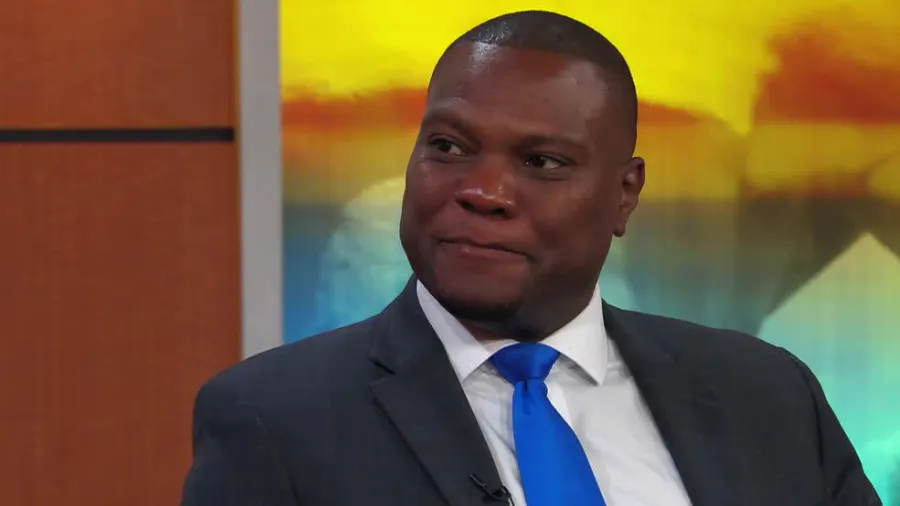 His main focuses:
His main focuses:
- Improving Student Outcomes
Nichols is excited to partner with Tulsa Public Schools and other school districts to put kids on “a pathway to success.” He also wants to open the Office of Children, Youth, and Families to focus on supporting kids in Tulsa.
- Ending Homelessness by 2030
Nichols is committed to ending homelessness in Tulsa by 2030 and has released specific plans to achieve this goal. He emphasizes the importance of increasing affordable housing and providing comprehensive services for those experiencing homelessness, including mental health and substance abuse support. HE also recognizes the impact of homelessness on children, highlighting that many students in Tulsa Public Schools are affected.
- Expanding the Economy
He aims to focus on economic expansion as one of his core priorities to drive Tulsa’s growth and prosperity.
- Making Tulsa the Safest Big City
Prioritizes making Tulsa the safest large city in the country as part of his platform.
- Continuing Mayor Bynum’s Commitment to Quality Indicators
He plans to continue using Tulsa quality indicators to assess community well-being and inform decision-making at city hall.
- Strengthening Relationships with Tribal Governments
Nichols intends to improve the relationship with tribal governments, especially regarding public safety and economic development. He is committed to hiring a Director of Tribal Policy and Partnerships to foster better collaboration with tribes and develop strong economic and safety strategies post-McGirt.
Full interview with Monroe Nichols can be found here.
Brent VanNorman
Brent VanNorman decided to move to Tulsa because of his three grandkids, and hopes he lives here for the rest of his life. He originally was running for city council before he was recruited to make the switch to run for mayor. He says he has a varied background that would make him a good mayor: he originally worked for a CPA firm, then was a pastor for almost 10 years, practiced law as an attorney, ad has run three different businesses.
“I think if you were looking for a business, a CEO, which is what the Tulsa mayor really is, you'd look for someone with a background that's diverse and has significant business experience,” he said.
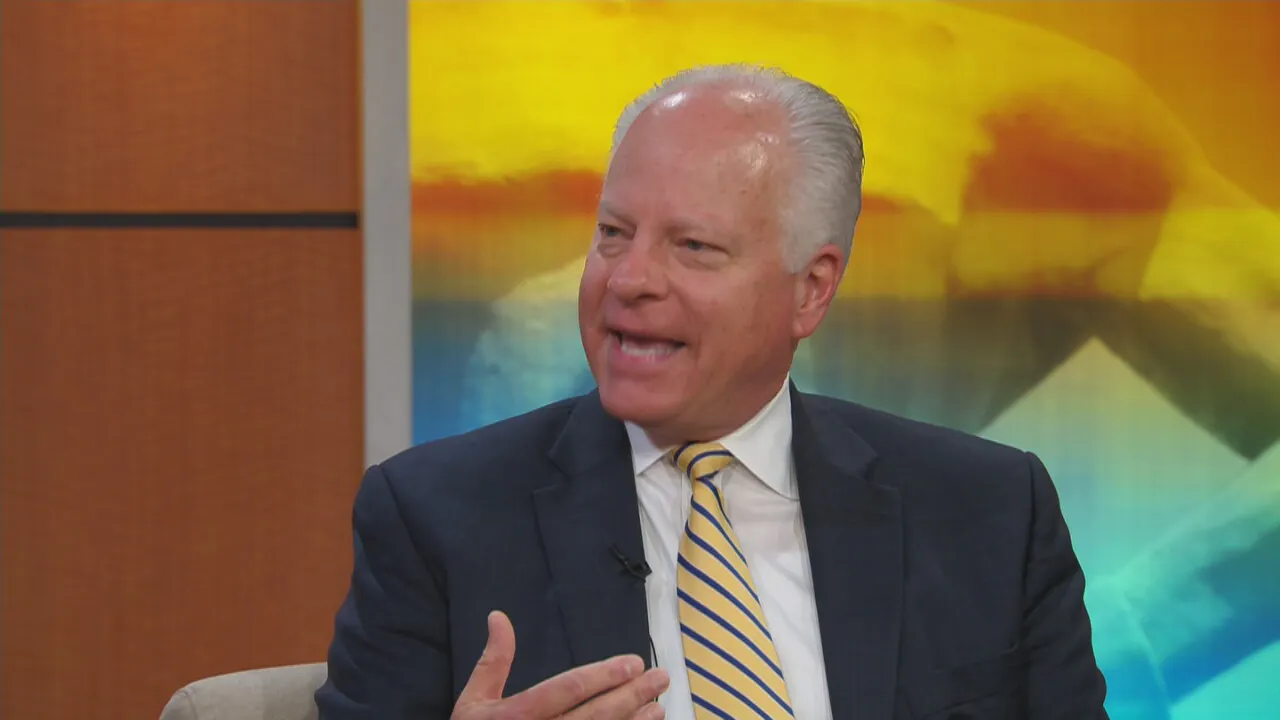 His main focuses:
His main focuses:
- Therapy-First Approach to Homelessness
VanNorman advocates for a "therapy-first" approach to addressing homelessness, rather than a "housing-first" strategy. He believes homelessness is primarily driven by drug addiction and mental health issues and argues that providing comprehensive treatment, including addressing physical, mental, emotional, and spiritual needs, is essential. He plans to support organizations in the area that are already doing effective work in these areas.
- Permitting Process Reform
VanNorman criticizes the current permitting process in Tulsa as slow and inefficient, often taking months or years. He proposes streamlining the process, potentially by allowing certified private contractors to handle permitting, thereby introducing competition and reducing wait times to days or weeks.
- Business-Friendly Policies
VanNorman wants to make Tulsa more business-friendly by reducing bureaucracy and promoting efficiency in city operations. He aims to foster a more inviting environment for economic growth.
Full interview with Brent VanNorman can be found here.
RELATED STORY: How Do I Register To Vote In Oklahoma? Do I Need To Show ID?
More Like This
January 28th, 2025
January 20th, 2025
January 14th, 2025
Top Headlines
April 17th, 2025
April 17th, 2025

